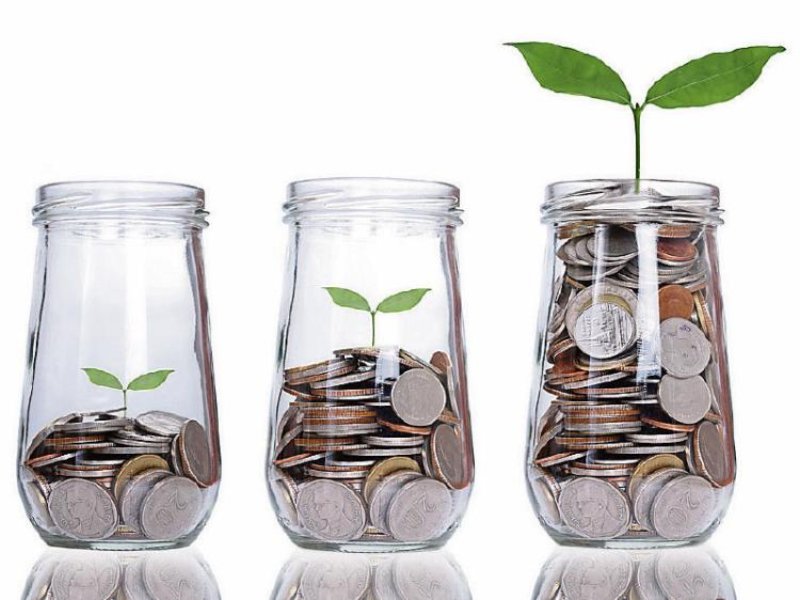
Americans And Our Broken Relationship with Money

When did we start hating money? And why does the topic of saving money make us all roll our eyes with a preprogrammed answer ready to any such enquiries; “I want to but I don’t seem to be able to…” Then there’s that little voice inside our head that tells us that we shouldn’t drive in an old beat up car, but instead in a brand new shiny car. In reality, it would be vastly beneficial to be able to save some money for the future. A huge advantage of being financially independent, saving up and living within our means, is eventually being able to retire! According to figures, only 37% of all Americans save in an IRA.

So what is it about saving that we Americans just don’t get? Well, for one, saving isn’t trendy, what’s trendy is that $40 spinning class, or the latest iPhone. Do they have any value in the long run… chances are they don’t.
With an average savings rate of only 2.8% in April 2018, according to the Federal Reserve Bank of St. Louis, about 40% of Americans can’t even pay $400 for emergency expenses. And to think that things weren’t always this way, but since the past few decades, the trend has been that Americans, on an average, owe more money than they have. What has made borrowing easier is the ease in availing credit and the real estate boom. But that does not seem to be the entire story.
What’s happening?
A theory is that unchecked consumption and spending is increasing with social media becoming more and more popular, with us seeing enticing advertisements and people flaunting their luxury material possessions. Studies have shown that these images are starting to influence and impact our collective spending habits.

Conspicuous consumption, as it is called, is usually because people want to portray a certain image of themselves, or they are giving in to social pressures and expectations. These expectations are certainly the wrong reason to purchase anything, especially if one wants to retire comfortably.
Honestly… would you rather own a fancy expensive car so people think you’re rich? Or would you save on buying an affordable car so you can add to your savings? The answer is staring you right in the face. There is no glamor in owning an expensive car when in reality you are broke, can barely afford the gas and are living paycheck to paycheck. It may be difficult for us to understand that even a slight increase in one’s savings (say from 2% to 4%) would allow us to save 2 times as much money, without really compromising on our standard of living.
Why are we making such a big deal about comfort or snob buys?
Generally, there would be no issues in trying to fit, which is regular social behaviour, exhibited even by children. But trying to keep up with trends and fashions may cause undue monetary hardships. It is not okay to rely on social safety nets, such as social security, to fund one’s retirement. You have to identify faulty financial decisions and fix them expeditiously before it causes irreparable damage to your financial health.
You have to be wealthy, not rich.
Before you can repair your broken relationship with money, it’s essential to know the purpose and the role that money plays in your life. Try this; instead of focusing on the quantity of things you may have or want, focus on the things that give you happiness and ask yourself; does this make me happy? This little exercise should help you cut out those expenses which do not add any value to your life.

For instance, you may have subscribed to a huge cable package for your TV but you only watch five or six channels regularly, it would do good if you can cut down on this unnecessary expense.
How do we decide what brings us happiness?
Michael Norton from Harvard Business School conducted a research, which showed that considering all things as equal, experiences bring us more happiness than material goods. Memories of a family meal are what we would remember more than a $1000 designer handbag we once bought or an ultra-expensive meal, on which we spent a small fortune.

By gaining more awareness of the things we tend to spend our money on, we will also become more aware of which of these things are worthy of being purchased. This, in turn, will make it easier to cut back on your expenses and increase your savings rate.
We aren’t here to tell you how to spend your money, but you being a little more mindful about the way you spend your paycheck or bonuses will definitely help you in becoming wealthy in the long run. Probably when you take the call on finally starting your retired life, knowing that you have enough financial backing to last you till the end of your days, the small sacrifices will seem worth it. After all, having a broken relationship with money hurts more than just your wallet.
More inTrade & Markets
-
How Retirees Can Avoid Credit Card Debt
Retirement is that magical time when you finally hang up your work boots and embrace a life of leisure and hobbies....
December 18, 2023 -
Katy Perry’s Real Estate Journey: Legal Battles and Property Pitfalls
Katy Perry, the pop sensation known for her chart-topping hits, bold fashion choices, and stint on American Idol, has been making...
December 15, 2023 -
What To Do When Markets Are Volatile?
Market volatility refers to the frequency and magnitude of price movements in financial markets. It is like the weather of the...
December 7, 2023 -
The Cheapest Days to Book Flights and Travel
When it comes to snagging the best deals on flights and travel, timing can be everything. It is like finding that...
November 27, 2023 -
The 4 Optimal Times to Consider Rebalancing Your Portfolio
Navigating the investment world is like hopping on a roller coaster—ups, downs, twists, and turns galore. Whether you’re a hands-on trader...
November 26, 2023 -
Buying a House? Understand You Are Buying a Liability, NOT an Asset
In the grand tapestry of life goals, owning a house is often stitched in golden thread. It is the culmination of...
November 19, 2023 -
How to Tell If You Are Financially Prepared for Change
So, you are contemplating a big life change, huh? Maybe you are considering relocating to a new city, pursuing a new...
November 9, 2023 -
The Best Foods to Eat Before a Flight
Flying can be an exhilarating experience, but it can also be physically demanding. Long lines, security checks, and cramped seats can...
November 3, 2023 -
How to Spot a Bull Market Return: Signs to Look Out For
When it comes to Wall Street, or the investing world at large, investors and traders dream of catching the wave of...
October 26, 2023















You must be logged in to post a comment Login